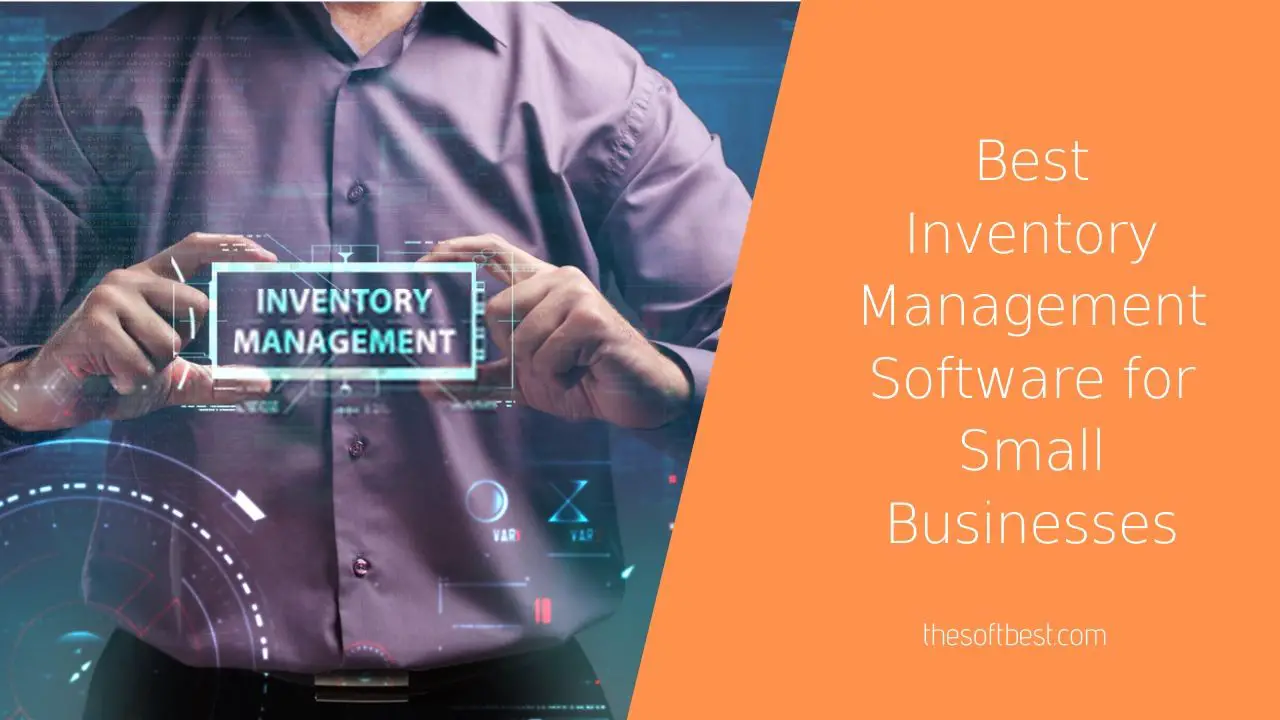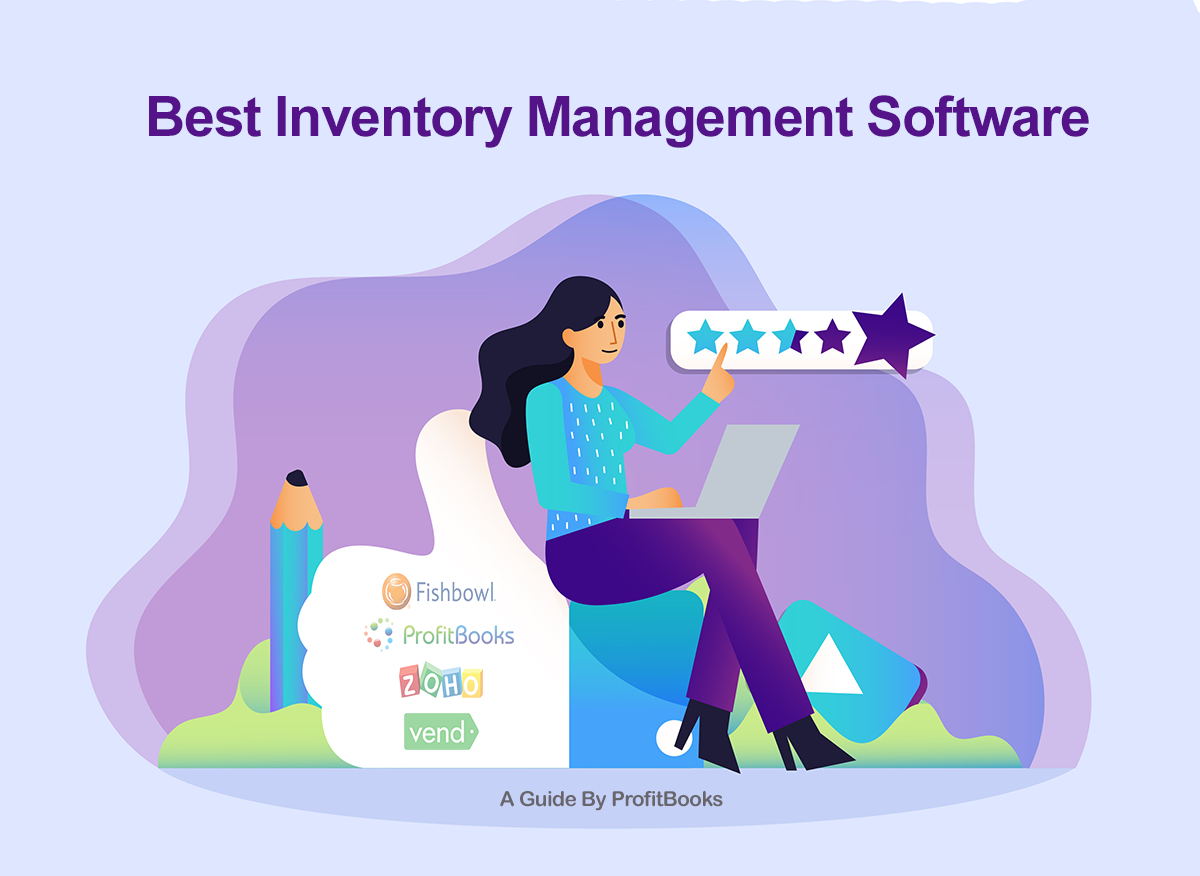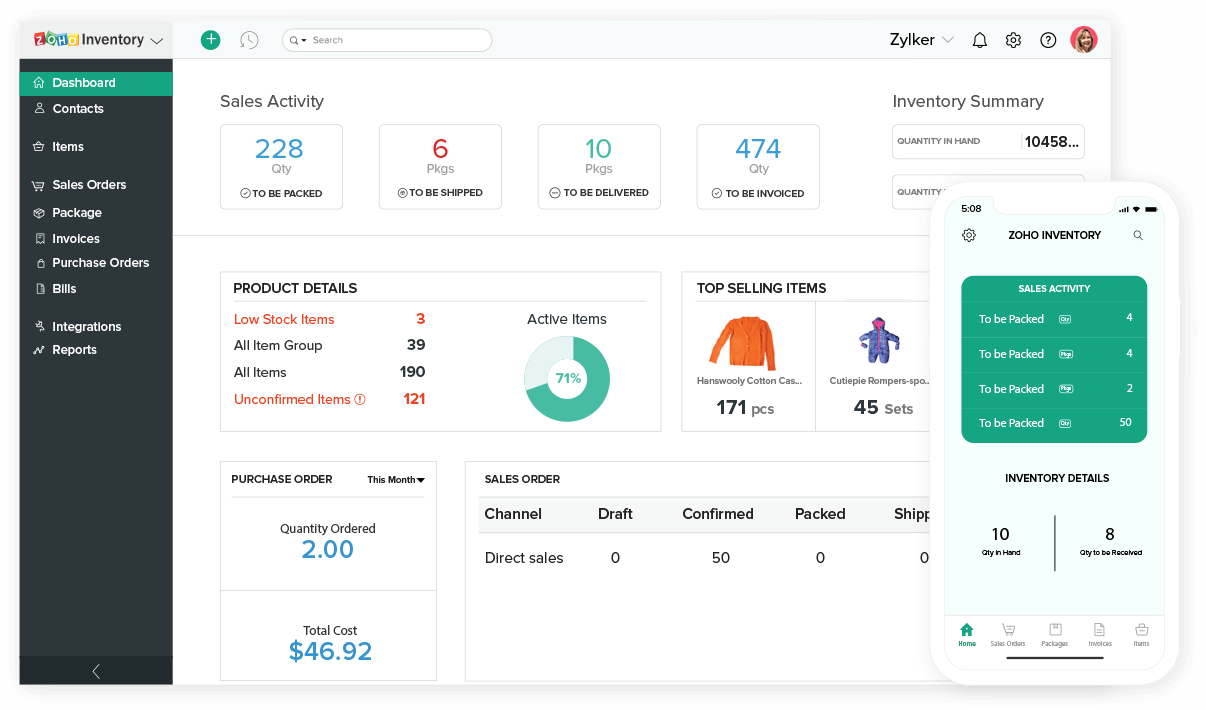Inventory software for small businesses is a game-changer, offering a comprehensive solution to manage inventory efficiently and drive business growth. It empowers small businesses to streamline operations, minimize costs, and enhance customer satisfaction, ultimately setting them on the path to success.
From tracking inventory levels and purchase orders to generating reports and analyzing data, inventory software provides a wealth of features that cater to the specific needs of small businesses. Its intuitive interface and ease of use make it accessible to businesses of all sizes, regardless of their technical expertise.
Introduction

Inventory software for small businesses is a computerized system designed to help businesses track and manage their inventory, which refers to the goods and materials they have on hand. It is an essential tool for small businesses as it helps them optimize their inventory levels, reduce costs, and improve customer satisfaction.
Inventory management is crucial for small businesses as it allows them to:
Importance of Inventory Management
- Avoid stockouts:Inventory software helps businesses keep track of their stock levels and reorder items when necessary, ensuring they always have the products their customers need.
- Reduce waste:By optimizing inventory levels, businesses can minimize the risk of overstocking and having to sell products at a loss or dispose of them.
- Improve customer satisfaction:By ensuring they have the right products in stock at the right time, businesses can meet customer demand and increase customer satisfaction.
- Free up cash flow:Efficient inventory management can help businesses reduce the amount of money tied up in inventory, freeing up cash flow for other business expenses.
Key Features of Inventory Software

Inventory software provides a comprehensive solution for businesses to efficiently manage their inventory. Here are some essential features to look for when selecting inventory software:
Inventory tracking enables businesses to keep track of their inventory levels in real-time, including the quantity on hand, on order, and in transit. This information is crucial for preventing stockouts and ensuring optimal inventory levels.
Purchase Order Management
Purchase order management allows businesses to streamline the purchasing process. It enables them to create and send purchase orders to suppliers, track order status, and receive and process goods.
Sales Order Management
Sales order management helps businesses manage customer orders. It enables them to process orders, track order status, and generate invoices and packing slips.
Reporting and Analytics
Reporting and analytics provide businesses with valuable insights into their inventory performance. They can generate reports on inventory levels, sales trends, and other key metrics, which can help them identify areas for improvement and make informed decisions.
Benefits of Using Inventory Software

Implementing inventory software offers numerous advantages that can significantly enhance the efficiency and profitability of small businesses. These benefits include:
Improved Inventory Accuracy
- Reduces manual data entry errors, ensuring accurate inventory records.
- Provides real-time visibility into stock levels, eliminating discrepancies and preventing overstocking or understocking.
Reduced Costs
- Minimizes inventory holding costs by optimizing stock levels and reducing waste.
- Improves purchasing efficiency, reducing overspending and unnecessary expenses.
Increased Efficiency
- Automates inventory management tasks, freeing up time for other essential business operations.
- Streamlines inventory processes, reducing the time and effort required to manage stock.
Enhanced Customer Satisfaction, Inventory software for small businesses
- Ensures product availability, reducing the likelihood of stockouts and backorders.
- Provides accurate and up-to-date information to customers, enhancing the shopping experience.
Choosing the Right Inventory Software
Selecting the ideal inventory software for your business requires careful consideration of several key factors:
Business Size:Small businesses typically have different inventory management needs compared to large enterprises, so choose software tailored to your company’s scale.
Industry:The software should align with the specific inventory requirements of your industry. For instance, software for retail businesses differs from that designed for manufacturing.
Budget:Inventory software costs vary, so determine a realistic budget and explore options that fit within your financial constraints.
Integration with Other Systems:Consider the need for integration with other business systems, such as accounting, POS, or CRM, to ensure seamless data flow and avoid manual data entry.
Implementation and Best Practices
Data Entry Accuracy
Accurate data entry is crucial for effective inventory management. Establish clear guidelines for data entry, including:
- Use standardized naming conventions for items and categories.
- Verify all data before entering it into the system.
- Use barcodes or RFID tags to minimize manual data entry errors.
Regular Inventory Audits
Regular inventory audits ensure the accuracy of your inventory records. Conduct audits at least monthly or quarterly to identify discrepancies and correct errors.
Staff Training
Proper staff training is essential for successful inventory management. Train staff on:
- How to use the inventory software.
- Best practices for data entry and inventory management.
- Inventory audit procedures.
Case Studies and Examples
Numerous small businesses have experienced significant success after implementing inventory software. These case studies and examples demonstrate the tangible benefits of utilizing such software:
Case Study: Acme Widgets
- Acme Widgets, a small manufacturing company, struggled with manual inventory management, leading to frequent stockouts and overstocking.
- After implementing an inventory software, Acme Widgets gained real-time visibility into their inventory levels, allowing them to optimize ordering and reduce stockouts by 35%.
Example: Willow Creek Boutique
- Willow Creek Boutique, a small retail store, faced challenges with managing multiple locations and tracking inventory across channels.
- By using inventory software, Willow Creek Boutique gained centralized control over their inventory, improved stock accuracy by 20%, and enhanced customer satisfaction through better availability of products.
Conclusion: Inventory Software For Small Businesses
Implementing inventory software can significantly enhance the efficiency and profitability of small businesses. By providing real-time visibility into inventory levels, streamlining ordering processes, and reducing waste, businesses can optimize their operations and improve customer satisfaction.
For small businesses considering implementing inventory software, it is crucial to carefully evaluate their specific needs and choose a solution that aligns with their size, industry, and budget. By following best practices, including proper implementation, regular updates, and ongoing training, businesses can maximize the benefits of inventory software and achieve optimal results.
Recommendations
To ensure a successful implementation of inventory software, small businesses should consider the following recommendations:
- Identify clear business goals and objectives for implementing inventory software.
- Thoroughly research and compare different software options to find the best fit for the business.
- Allocate sufficient time and resources for implementation, including training staff and setting up the system.
- Regularly monitor inventory levels and adjust ordering patterns as needed.
- Continuously review and update the inventory software to ensure it meets evolving business needs.
Final Thoughts
In conclusion, inventory software for small businesses is an indispensable tool that can transform inventory management, leading to improved accuracy, reduced costs, increased efficiency, and enhanced customer satisfaction. By embracing the power of inventory software, small businesses can gain a competitive edge, optimize their operations, and unlock new opportunities for growth.
Key Questions Answered
What are the key benefits of using inventory software for small businesses?
Inventory software for small businesses offers numerous benefits, including improved inventory accuracy, reduced costs, increased efficiency, and enhanced customer satisfaction.
How can inventory software help small businesses save money?
Inventory software helps small businesses save money by reducing waste, optimizing purchasing, and improving cash flow.
Is inventory software difficult to implement and use?
Inventory software is designed to be user-friendly and easy to implement, even for small businesses with limited technical resources.